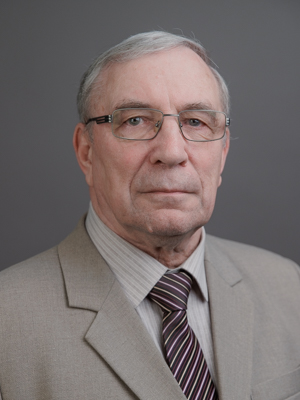Main research areas
We study fundamental questions of heat and mass transfer and aerodynamics:
- In free and forced convection;
- Boiling in an underheated liquid;
- In surface condensation;
- In melting and crystallization;
- At combustion of liquid and gaseous fuels.
We are interested in the study and intensification of heat transfer in operating power plants:
- Internal combustion engine performance monitoring;
- Optimization of burner apparatus operation;
- Improvement of cooling systems of powerful turbogenerators;
- Thermometry and anemometry in gas generators and flow parts of power and transportation gas turbines;
- Thermometry in combustion chambers of powerful diesel engines;
- Measurement of heat flows when bodies are streamlined by supersonic flows;
- Non-invasive methods of studying the thermal state of biological objects.
We develop new methods and means of measurement, creation of complex experimental techniques, monitoring systems and methods of signal registration and processing.
Projects:
Gradient Thermometry Project
The project is aimed at the development and improvement of a unique method of gradient thermometry, which has no analogues in the world, allowing real-time measurement of local heat flux density. The project tasks include: creation of heat flux sensors based on anisotropic metals and semiconductors, development and creation of new compositions of heterogeneous gradient heat flux sensors, calibration of primary transducers, improvement of methods of mounting sensors on the heat exchange surface and methods of recording their signal, etc.
Project “Investigation of convective heat transfer in a single-phase medium”
The project is aimed at conducting scientific and applied experiments in the field of aerodynamics and convective heat transfer. The project solves two problems simultaneously: research of fundamental problems of convective heat transfer and its intensification.
The Project uses a methodology that allows for a comprehensive study of convective heat transfer and flow near the heat transfer surfaces of recuperative heat exchangers. The methodology includes gradient thermometry, PIV, thermometry and shadow diagnostics, which in various combinations allow to reveal the relationship between the flow behavior in the vicinity of the models with the heat flux and/or temperature distribution on the heat exchange surface.
The results obtained can be used in the design, construction, manufacture and modernization of power devices where intensive heat exchange in a single-phase medium with acceptable hydraulic characteristics is required.
Project “Investigation of heat transfer during liquid boiling on superheated surfaces”
The main goal of the project is to create an experimental base for measuring the local heat flux density during boiling and to solve the issues of heat transfer intensification during boiling with the help of various mechanisms.
The project is aimed at development of own physical model and refinement of existing ones with the help of a methodology that allows to comprehensively study boiling of saturated and underheated liquids near superheated surfaces of different shapes. The technique includes gradient thermometry, thermometry and high-speed imaging, which in various combinations allow to determine the boundaries of different boiling regimes and to correlate pulsations of local heat flux density with hydrodynamics and vapor bubble formation on the model surface.
The results obtained can be used in the refinement of mathematical models and empirical relationships describing the process of heat transfer during boiling. The results obtained in solving problems related to the intensification of heat exchange during boiling will be used in the design of heat exchangers using a boiling coolant to reduce their mass and dimensional parameters while maintaining the value of heat transfer.
Project “Study of condensation heat transfer on surfaces of thermal power plants”
The aim of the project is to create a method for reliable experimental evaluation of heat fluxes and heat transfer coefficients during condensation.
The project tasks include development of a complex methodology combining the capabilities of gradient thermometry, thermometry and flow visualization; creation of a unique monitoring and automated control system; experimental determination of optimal methods of heat transfer intensification on various surfaces.
The results of the project are relevant for all branches of power engineering and metallurgy that use vapor condensation, can find application in cooling systems of laser and electronic devices, in chemical technology, in fire extinguishing and in many other areas. Implementation of the proposed methodology will open new opportunities in automatic control systems, develop new and improve existing designs of heat exchangers of TPPs and NPPs, adjust engineering methods of calculation, etc.
Project “Study of heat exchange during combustion of liquid and gaseous fuels”.
The research group is engaged in the study of local heat generation and aerodynamics during flaring of various fuels. This study will allow to consider in detail the complex processes occurring in the power equipment and clarify the existing calculation methods. Work is being actively carried out to improve methods of heat exchange intensification during fuel combustion, to create measuring probes and to determine optimal operating modes of burner devices. Implementation of the project will make it possible to increase energy efficiency and environmental friendliness of power plants.
Research team members:







